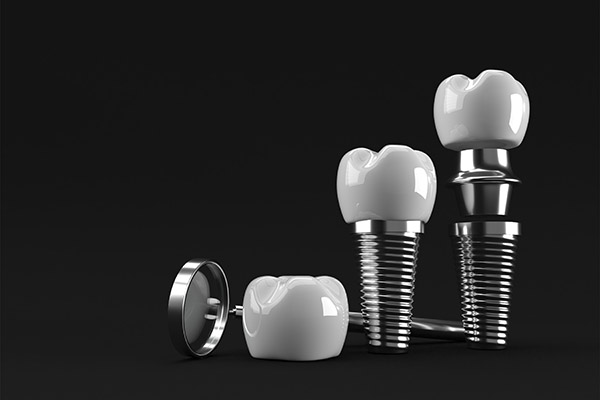 Dental implants can permanently replace teeth and maintain a natural appearance. Unlike traditional dentures or bridges, implants integrate with the jawbone, offering stability, functionality, and longevity. However, proper care is needed to ensure their success and prevent complications. Following the best practices for implant care can help maintain oral health and extend the restoration's lifespan.
Dental implants can permanently replace teeth and maintain a natural appearance. Unlike traditional dentures or bridges, implants integrate with the jawbone, offering stability, functionality, and longevity. However, proper care is needed to ensure their success and prevent complications. Following the best practices for implant care can help maintain oral health and extend the restoration's lifespan.
How long do dental implants last?
Dental implants can replace any number of lost teeth. However, they are only one component of the tooth replacement, as they are metal posts that serve as false tooth roots. Implants fully integrate with the jawbone in osseointegration, creating a stable anchor for the rest of the tooth replacement. This may be a dental crown for one missing tooth or a permanent denture for a full arch of missing teeth.
When cared for properly, implants can last a lifetime. However, due to normal wear, the general dentist may need to replace the attached tooth replacement after 10 to 15 years.
A simple guide to dental implant care
Several factors influence the longevity of dental implants, including oral hygiene, lifestyle habits, and regular dental care. Although implants resist decay, the surrounding gum tissue and bone need attention to prevent complications. A general dentist can provide personalized care recommendations during an appointment. Still, most patients can expect to follow the basics below.
Use gentle, non-abrasive products
To avoid causing irritation or damage, we recommend using a soft toothbrush to clean the dental implant and any remaining teeth. Hard-bristled brushes can wear down the permanent denture's surface and alter its appearance. Non-abrasive toothpaste is also preferred, as it prevents scratching the tooth replacement while effectively removing plaque.
Avoid hard and sticky foods
Certain foods can compromise the stability and longevity of tooth replacements atop dental implants. For example, hard foods, such as ice, hard candies, and unpopped popcorn kernels, can put excessive pressure on an implant crown, causing it to chip or crack. Similarly, sticky foods, including caramel and chewing gum, can adhere to an implant crown, making cleaning difficult and increasing the risk of plaque buildup.
Take care of your gums
Gum disease can lead to tooth loss and threaten the stability of dental implants by causing inflammation and bone loss. Brushing and flossing regularly helps prevent plaque accumulation, which can contribute to gum infections such as peri-implantitis. A general dentist may also recommend an antimicrobial mouth rinse to reduce bacteria levels and promote gum health.
Get regular dental checkups
Regular dental visits allow a general dentist to monitor implants and ensure healthy gums and bone. Professional cleanings remove plaque, while exams and X-rays detect early issues. Early intervention prevents complications, extends implant longevity, and guides optimal oral hygiene.
Limit alcohol and tobacco
Smoking and excessive alcohol consumption can jeopardize dental implants by impairing healing and increasing infection risk. Smoking reduces blood flow to the gums, while alcohol can cause dry mouth and bacterial buildup. Avoiding tobacco and limiting alcohol helps maintain gum health and supports the long-term success of dental implants.
Helping your dental implants last a lifetime
Dental implants are a functional solution for tooth loss, but their success depends on proper care and maintenance. At Bagnall Family Dentistry, we help patients care for their implants so that they can last a lifetime. Schedule an appointment with our Andover team today.
Request an appointment or call Bagnall Family Dentistry at 978-655-2005 for an appointment in our Andover office.
Related Posts
Dental implants replace tooth roots, anchoring right into the jawbone. They support natural chewing forces, protect the jawbone from tissue loss, and stabilize confident smiles. This design makes them a smart investment for those seeking a long-term solution to replace missing teeth. While dental implants can last a lifetime, their longevity depends on proper care…
Achieving a bright, functional smile can be life-changing, and dental implants stand out as a dependable solution for replacing missing teeth. These implants anchor into the jawbone, restoring comfort and the aesthetics of natural teeth. However, proceeding with this procedure requires thoughtful preparation and clear communication with a dental professional. Below are five important topics…
Dental implants often beat out other tooth replacements due to their natural appearance and durability. Although getting them can be a lengthy process, many patients find it a worthwhile one. Proper preparation can contribute to a smooth experience and optimal results. Understanding each phase of the process, making necessary lifestyle adjustments, and following professional recommendations…
